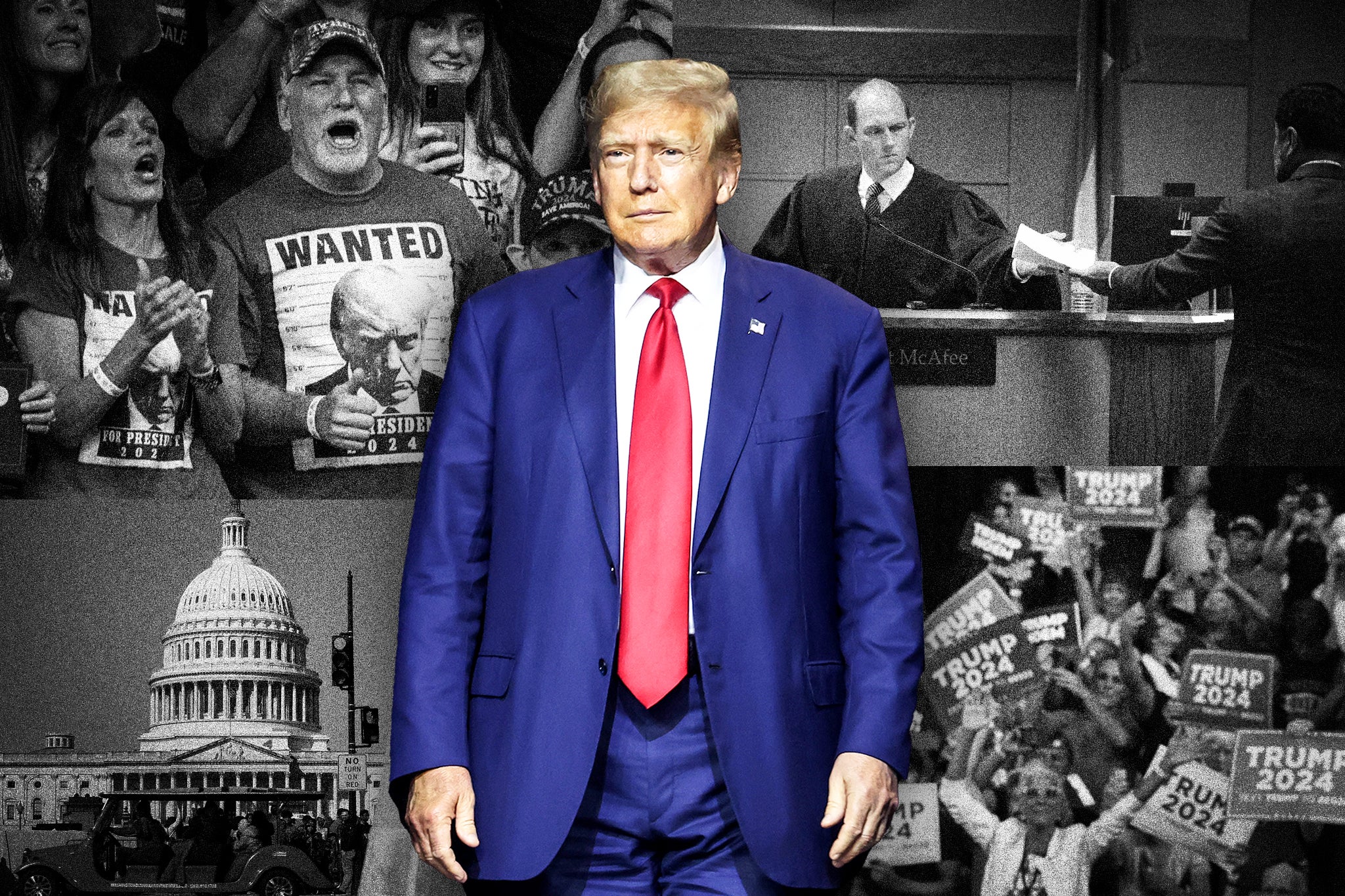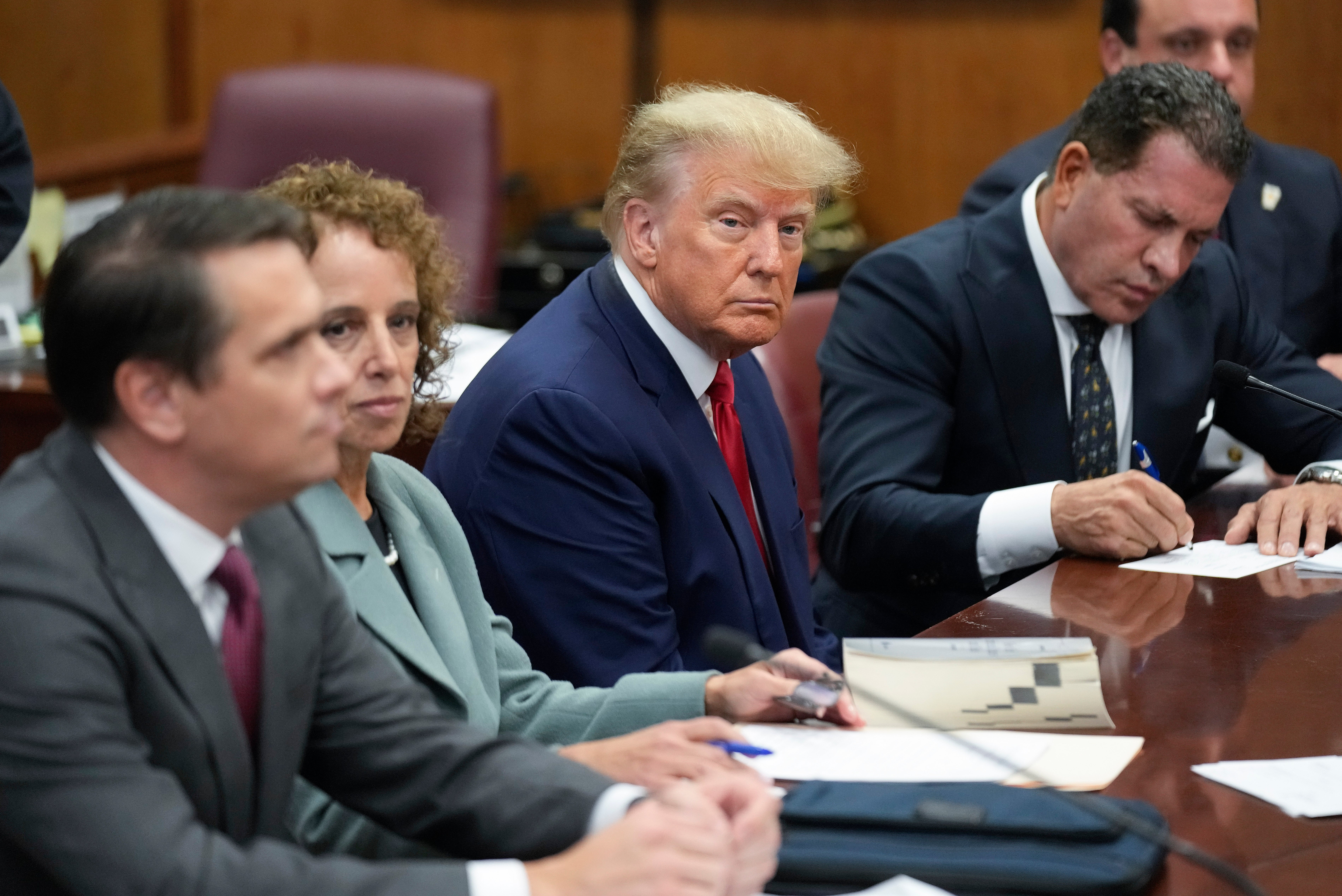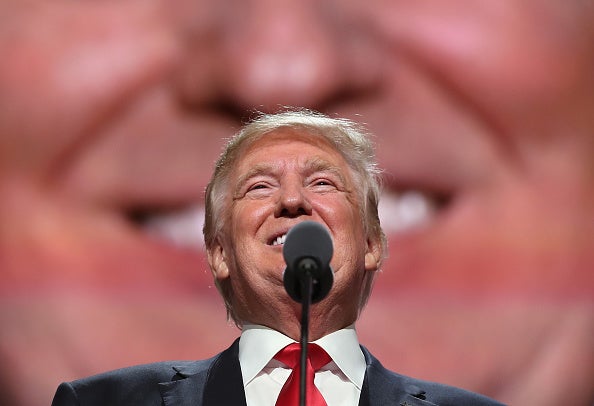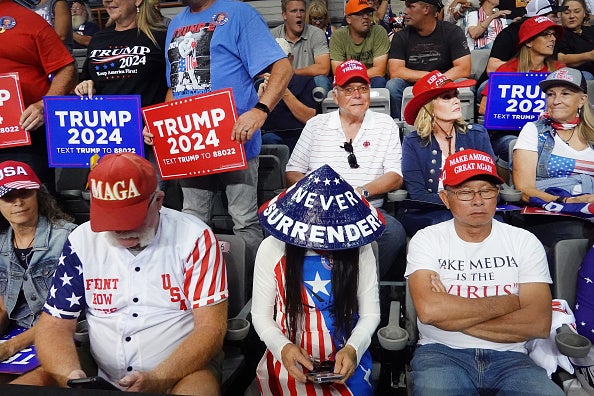Calendar of chaos: How Trump’s trial dates and the 2024 election overlap
Three criminal trials, one civil trial, and 50 primaries all within 11 months. How will Donald Trump manage a presidential campaign and his many legal trials in one year? Ariana Baio breaks it down


In a typical presidential election year, candidates will spend the 11 months leading up to election day shaking hands and kissing babies at rallies as the primaries unfold.
But nothing is typical when it comes to Donald Trump.
Instead, the ex-president will be forced to juggle his campaign for the White House while also defending himself in federal and state courts in four different cases that have hearings and trial dates scattered throughout 2024.
Mr Trump’s clashing schedules kicked off with E Jean Carroll’s damages trial on the same day as the Iowa caucus and run through all the way to the Republican convention. The former president’s jam-packed schedule seemingly leaves little time for him to socialise outside of a courtroom.
How Mr Trump will manage his campaign while convincing voters he’s innocent of it all – including alleged efforts to overturn previous elections in his favour – remains to be seen.
How is Donald Trump’s 2024 calendar playing out?
15 April 2024 – Hush-money payment trial begins
Last year, Mr Trump became the first sitting or former president to be criminally indicted after being charged with 34 counts of falsifying business records in a Manhattan criminal court.
On 15 April, the trial began with jury selection. Opening statements – and potentially the first witness testimony – are expected to take place on Monday 22 April.
The charges stem from an investigation by Manhattan district attorney Alvin Bragg that alleges Mr Trump tried to cover up hush money payments that he made to adult film actor Stormy Daniels in 2016 to silence her claims of an extramarital affair.

25 April 2024 - Supreme Court hears oral arguments for Trump’s presidential immunity defence
The Supreme Court agreed in February to hear the case from Mr Trump after lower courts rejected his presidential immunity defence from criminal charges related to his alleged attempts to overturn the results of the 2020 presidential election.
The arguments will take place on the last day of the court’s calendar. The court’s ruling is highly anticipated after the election conspiracy case, prosecuted by special counsel Jack Smith in Washington, DC, essentially came to a halt when Mr Trump came forward with his defence. The trial was initially supposed to start on 4 March and has since been delayed.
So far, Mr Trump’s defence has been shot down at both the appeals court and by the federal judge overseeing the case. Last month, appeals court judges wrote that “citizen Trump” is not shielded by executive immunity, and that his “alleged efforts to remain in power despite losing the 2020 election were, if proven, an unprecedented assault on the structure of our government.”
July-August 2024 – federal classified documents trial could begin
Mr Trump is expected back in federal court this summer, this time in Florida, to face 40 charges pertaining to his alleged mishandling of sensitive government documents.
Officials have not announced an exact date, but prosecutors have proposed 8 July as an option, while Mr Trump’s team have pushed for a 12 August start date. The trial was initially supposed to begin on 20 May.
Federal prosecutors indicted Mr Trump last June for allegedly unlawfully retaining top-secret documents that contained national security information at his Mar-a-Lago home after he left office. The charges include violating a section of the Espionage Act for allegedly unlawfully retaining top-secret documents that contained national security information.
15-18 July 2024 - GOP convention
After the remaining states conduct their primaries, the Republican Party will host its convention where it will announce an official nominee.
At the moment, Mr Trump is the unofficial presumptive Republican nominee after his final GOP opponent, Nikki Haley, dropped out of the race. Her concession came after losing fourteen state primaries to the former president on Super Tuesday.
5 August 2024 – Georgia election interference trial?
Three months before election day, Mr Trump is expected to head to trial in Georgia for his alleged involvement in trying to overturn the state’s 2020 election results in his favour.
The former president was charged with violating Georgia’s Racketeer Influenced and Corrupt Organizations (RICO) statute along with 18 other co-defendants.
Mr Trump faces 12 additional charges including solicitation of a public officer, conspiracy to make false statements under oath and more.
The trial was delayed while District Attorney Fani Willis faced allegations from Mr Trump’s legal team that a previous romantic relationship with a prosecutor she hired for the case presented a conflict of interest. Ms Willis prevailed and prosecutor Nathan Wade resigned.
Efforts to delay the case continue and no trial date has been set, despite prosecution requests for a 5 August start date.
5 November 2024 – Election Day
On Tuesday, 5 November, US voters will head to the polls to vote for a president.

How will this affect Donald Trump?
Glancing over Mr Trump’s calendar, it may seem like his ability to successfully campaign is virtually impossible. But the ex-president has positioned himself to benefit from his trials.
“In a weird way, none of this really bothers him. In fact, it’s a great asset for him politically,” Kevin O’Brien, a partner at Ford O’Brien Landy LLP and former assistant US attorney, told The Independent.
Mr Trump has capitalised on his trials by painting himself as a victim – or martyr as Mr O’Brien points out – to appeal to his supporters.
After each indictment, the ex-president’s campaign has called on supporters to express their outrage through their wallets. Splashed across his website, Truth Social posts and emails is Mr Trump’s new slogan: “They’re not after me, they’re after you… I’m just standing in the way.”

Even though some of the trials raise questions about Mr Trump’s ability to lead the country successfully – such as the classified documents case and the federal election interference case – his former job and loyal fanbase reinforce his ability to be president.
“He can always argue, and he will argue up until the day of the election, this is all unfair and he wasn’t able to campaign effectively because of all these persecutions from Garland and Biden,” Mr O’Brien said.
But the likelihood that Mr Trump will have to juggle three criminal trials and a campaign simultaneously is still unclear. Though the judges in each case have set start dates, they can be changed – and according to Mr O’Brien, it is likely that they will be.
Mr O’Brien said the three trials are “not feasible” because they require massive time and resources from both the prosecutors and Mr Trump’s legal team.
“It’s terribly unfair to the defence,” Mr O’Brien said. “It takes months and months to prepare for one of these large white-collar cases – he only has so much manpower at his disposal.”
Already, Mr Trump’s legal team has sought to delay the trials by using every legal motion possible.
Two of the trials against Mr Trump will most likely need to be delayed until after the election. Prosecutors may choose to go forward with the strongest case against the ex-president which appears to be the federal election interference case.
“Those issues are important for voters, it’s important to know how he intends to defend himself against what appears to be a pretty serious constitutional and criminal offence,” Mr O’Brien said.
Mr O’Brien suggested the case could take two to three months to be completed, meaning the trial could conclude shortly before the GOP convention.
Even if it’s the only case Mr Trump is trailed in before the election, there’s no telling how the outcome will change voters’, and the Republican Party’s, perception of the former president.
Join our commenting forum
Join thought-provoking conversations, follow other Independent readers and see their replies
Comments

Bookmark popover
Removed from bookmarks